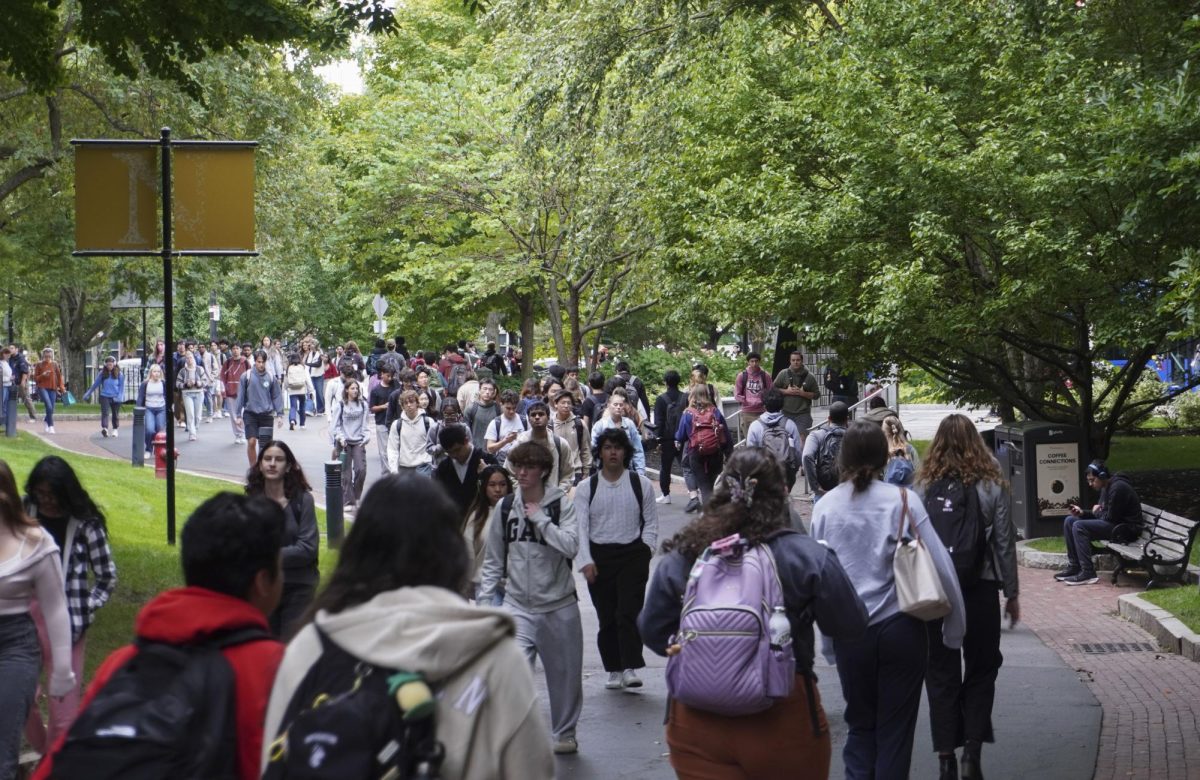By Lucia Allen
Nationwide, student veterans have had trouble earning promised course credit for army medic work, according to local media reports. At Northeastern, student veterans may have trouble even finding a system to get credit.
Multiple attempts by The News to discover how Northeastern allocates credits to veterans were unsuccessful. Officials in the registrar and the enrollment offices said they couldn’t comment.
“For new students, they need to go through the same admission process as everyone else,” said Kerry Salerno, director of marketing and communication for admissions and new student ‘ family services.
The American Council on Education and Defense Activity for Non-Traditional Educational support, outlines guidelines for accreditation for veteran experience and training. One student veteran of Iraq, Michael McDonough, came to Northeastern for the Reserve Officer Training Core (ROTC) but is a student at Suffolk. McDonough, a freshman international affairs major, was stationed in Fort Bragg, N.C., as a direct firearm infantryman, or standard ground fighting troop. North Carolina served as his home base while he served a little more than three years in the army. Two years of his service were spent training in North Carolina before he was deployed to Iraq for 12 months, McDonough said.
McDonough participated in all basic combat operations while in Iraq with 100 other deputies, as well as running combat patrols to raids in Samarra, a city 60 miles north of Baghdad. When he came to Suffolk, McDonough did not seek out course credit for all his training and service.
“I originally planned to double major; so I knew I had to be here [at Suffolk] for four years, and any credit that would transfer would only be as electives. I couldn’t fit in any electives with my major, so I just did [seek out course credit],” he said. “I would not have had trouble acquiring any of my course credit at Suffolk. I simply did not have a place to put it, so I didn’t request it. Physical training and generally military-type training wouldn’t fulfill any true course credit requirement like math or science anyway.”
Northeastern is a host institution, meaning cadets from nearby Boston schools, like Boston College, Emmanuel, Suffolk, Simmons, Berklee, Massachusetts Institute of Art and University of Massachusetts Boston come to Northeastern for their ROTC experience. Army ROTC consists of a daily one-hour course. The program is open to all students who are less than a year and a half away from graduation, said Douglas Washington, captain and assistant professor of military science of Northeastern’s ROTC.
Though the actual ROTC program doesn’t offer degree credit, students can get a leadership minor through ROTC by taking a few extra academic classes, Washington said.
Washington said one of the benefits of ROTC is that it allows students to attend college and not go into direct deployment, unlike army recruiters who have students serve and then go to school.
After two years, ROTC cadets are still not required to join the army or become a reserve, but classes are specified to army interests, or what students intend on doing in the military. Students are then also presented with the choice to sign the contracts to join up, Washington said. “I do think there is a good relationship between students coming in to receive credit for service overseas as military veterans and the registrar; there’s a lot of [local] men and women who are seeking money for college, and for the academic portion [student veterans] go through [during] their duration of service, they just hope to have their time spent recognized by Northeastern University and the Registrar,” Washington said.
McDonough said he does not feel his time was wasted.
“I simply joined to serve my country,” he said.
McDonough offered this advice to students seeking college credit for their service.
“If you really want college credit, the solution is to go to college. Service training really does not match up with college course work,” he said.”I returned for college, but I want to become a military officer. In order to do so, [I] need a college degree. I basically came to Northeastern for the ROTC program.”









